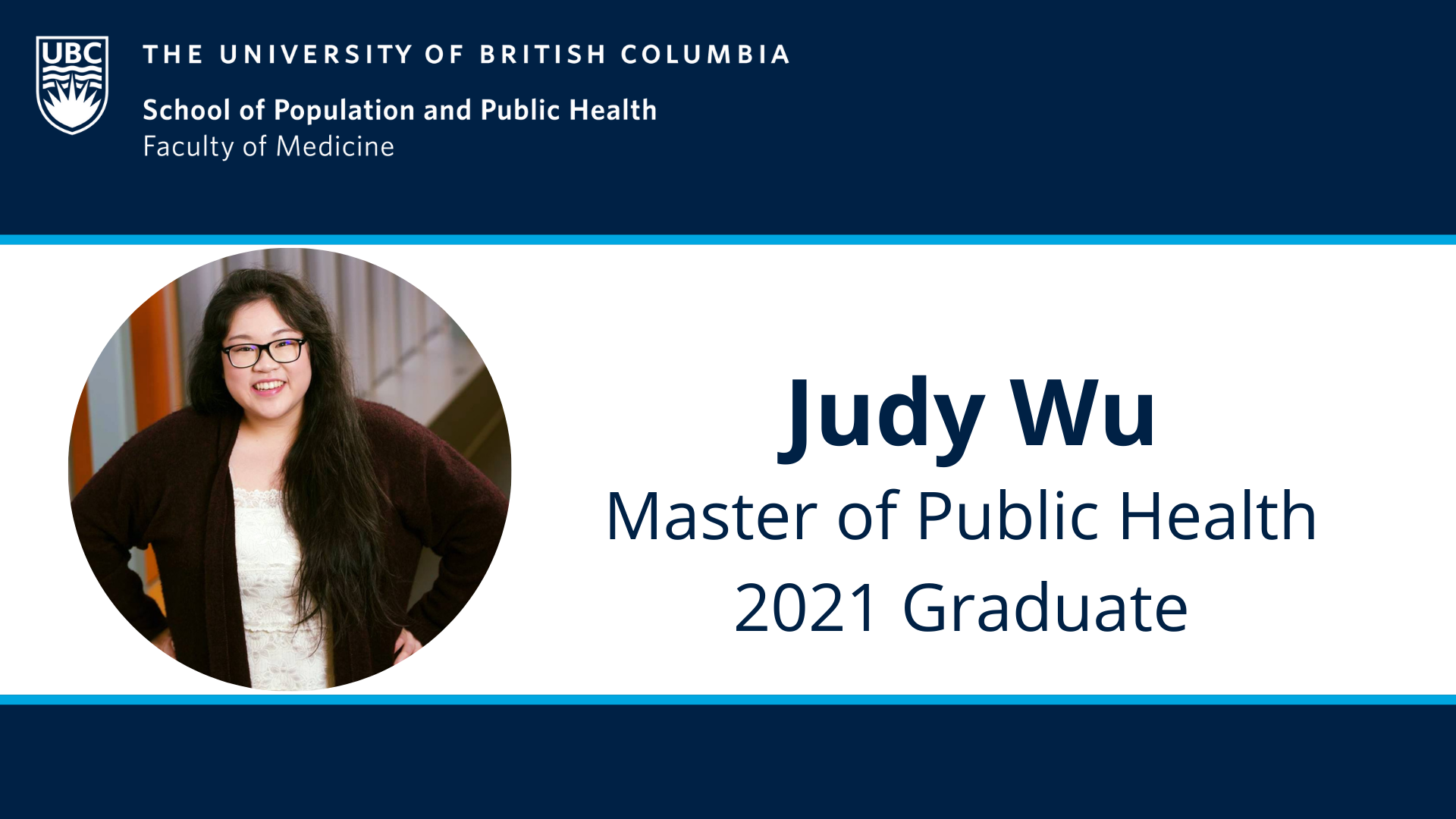
We acknowledge that the UBC Vancouver campus is situated on the traditional, ancestral, and unceded territory of the xʷməθkʷəy̓əm (Musqueam).
Judy Wu
Judy Wu | Master of Public Health

Who is Judy?
I am a research assistant with the Youth Development Instrument (YDI) survey project, a collaboration among Simon Fraser University, the Human Early Learning Partnership at the University of British Columbia, and the BC Centre for Disease Control. The YDI survey is a youth health and well-being survey aimed at Grade 11 students in BC. I work with the Youth Advisory Council (YAC), a group of passionate high school students across the province to disseminate findings from the YDI survey. I am also particularly interested in the mental health effects of climate change on youth. Currently, I am using results from the YDI to further investigate experiences of climate change concern and eco-anxiety in BC high school students and hope to continue academic work within this field.
Who or what inspires you?
Working with high school-aged youth on the Youth Advisory Council is a constant inspiration because our youth members are incredibly passionate, articulate, and insightful individuals. It is amazing to hear them talk about topics such as climate issues, intersectionality, and systemic racism, and makes me feel hopeful for future generations.
What insights have you gained from your time as an MPH student?
When I entered into the MPH program, I had quite a bit of experience with clinical research with highly specialized patient populations. At that time, I also preferred working and communicating directly with patients or study participants.
During the program, however, I found myself continuously broadening the populations I wanted to work with and looking upstream for solutions. Although research and care for specialized populations is important, I also realized how impactful population-level work can be. And at some point, I had switched from wanting to work in clinical settings to focusing on population-level measures and interventions. (I also learned how tedious data cleaning can be with big data sets during my time as a student.)
What is something you wish more people knew about your field of study?
Focus and attention to mental health topics have come a long way in past decades. However, recent conversations appear to focus more on reactive and clinical approaches, over preventative methods. As a result, early life experiences and positive development are often overlooked, but are incredibly important in lifelong mental health and well-being. It would be great to see greater education about the importance of early life experiences and greater investments made in those areas of research.
What advice would you give to someone who is interested in your field of study?
If you are planning any type of activity that involves youth/young people, it’s critical that you consult with them and learn about their experiences (even more so if you’re focusing on youth mental health). There have been many times when I assumed the work I was doing would be relevant to the high school students, only to have them come back and tell me that my original plan would not resonate with their age group. (Consulting with youth before you present your work will also make you feel younger and more in-touch with pop culture!)
How do you like to spend your free time?
I have been spending a lot of time listening to podcasts recently! I like to put one on when I’m getting ready in the morning or if I’m out for a walk. If you’re looking for recommendations, I would suggest you check out Radiolab or Reply All!
Where should people go to learn more about your work?
LinkedIn: linkedin.com/in/judy-wu-95061a143
Website for the YDI: http://chartlab.ca/
Instagram for the YDI: https://www.instagram.com/yditeam/?hl=en
_______________________________
To read more stories, please visit: https://www.spph.ubc.ca/student-profile-miniseries
Published on March 2022.
This interview was coordinated by Ariana Choi.